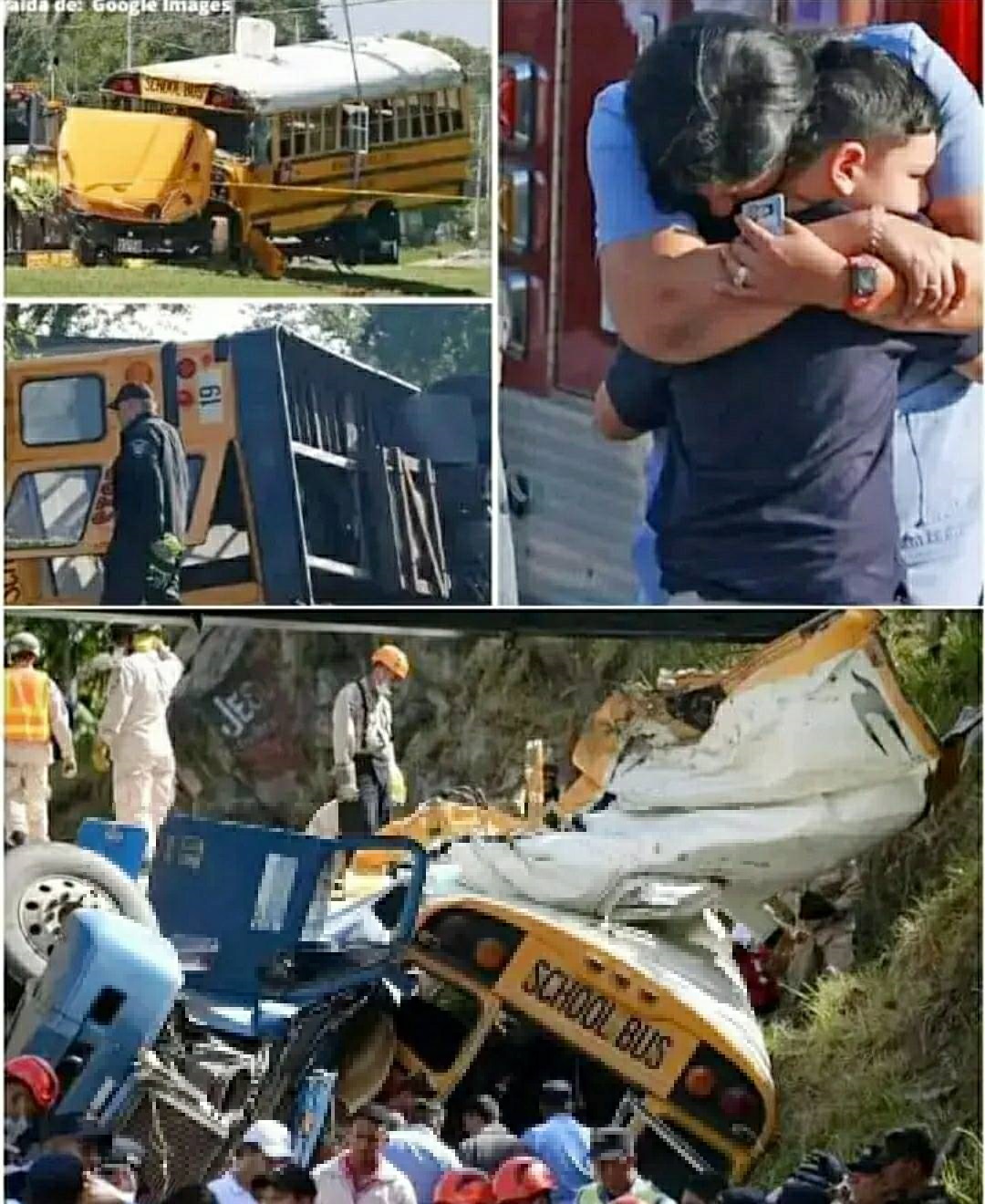National Mourning School bus accident, 32 children lost! See more

Tanzania was united in grief when a devastating school bus accident in the Karatu District claimed the lives of 32 children, two teachers, and a driver. The tragedy, involving students from Lucky Vincent Primary School in Arusha, remains one of the nation’s saddest moments — a wound that time has softened but never fully healed.
What began as a joyful morning filled with excitement and purpose turned into unimaginable loss. The students were traveling to Karatu to take part in a mock national examination — an important milestone for the young learners, full of dreams and ambition. The trip was meant to be short and routine, but heavy rain had made the mountain roads dangerously slippery. As the bus navigated a sharp bend, it veered off the road, leading to the heartbreaking accident.
According to reports, the vehicle lost control and plunged into a ravine. Rescue teams responded immediately, but the damage was severe. The nation was left in shock as news spread rapidly, with television and radio stations dedicating continuous coverage to the tragedy. Within hours, President John Magufuli declared three days of national mourning, describing the event as “a tragedy that has broken the heart of the nation.” Flags were lowered, and communities across Tanzania held vigils, prayers, and candlelight ceremonies to honor the young lives lost.
At Lucky Vincent Primary School, hundreds of people gathered to pay tribute — parents, teachers, and friends stood side by side, their sorrow visible. The children were remembered not just as students, but as bright souls who had filled their classrooms and homes with laughter and hope.
Amid the devastation, there was a glimmer of hope. Three children — Wilson, Sadia, and Doreen — were found alive among the wreckage. Though seriously injured, their survival was described as miraculous. Their story quickly reached international headlines, symbolizing resilience and faith in the midst of despair.
Through coordinated efforts between Tanzanian authorities and international organizations, the survivors were flown to the United States for advanced medical treatment. Their recovery became a global story of compassion and unity, with Tanzanians everywhere following their progress and sending messages of encouragement.
In the aftermath, the tragedy sparked a nationwide conversation about road safety, driver training, and the condition of school transport vehicles. The government pledged reforms — from stricter licensing requirements to better maintenance of school buses and rural roads. Awareness programs were launched to educate both drivers and students about safety. While progress has been made, many citizens still call for consistent enforcement to prevent future tragedies.
Today, the Karatu tragedy stands as a symbol of both loss and resilience. Each year, families, teachers, and community members return to the memorial site near Karatu — a peaceful place where a stone monument lists the names of all who lost their lives. Visitors often leave flowers, school supplies, and letters of remembrance. Teachers bring students to reflect on the importance of safety and community responsibility.
For many families, the pain endures. Some have moved away from Arusha, unable to face the daily reminders, while others have formed support groups to share their experiences and keep the memory of their children alive. Every anniversary, they gather to pray, sing, and share memories — about birthdays missed, dreams unfulfilled, and the love that continues to endure.
The three survivors, now young adults, have since spoken publicly about their journey of healing. Grateful for the support they received, they have become advocates for safer roads and stronger transportation systems in Tanzania. Their strength stands as a living tribute to the classmates they lost and a message of hope for the generations to come.
Eight years later, the memory of that day still brings the country together. It remains a reminder of how fragile life can be — and how powerful unity and compassion are in the face of tragedy. Each rainy season renews awareness of the importance of safety and accountability, especially on Tanzania’s rural roads.
At every anniversary, candles flicker in the twilight at the Karatu memorial. Names are read aloud, followed by moments of silence that speak louder than words. The memory of those children, teachers, and their driver continues to inspire action, compassion, and care for future generations.
The Karatu tragedy is no longer just a story from the past — it is a lasting lesson written into Tanzania’s history. It taught the nation about the value of life, the importance of safety, and the strength that comes from unity.
As the nation remembers those lives lost too soon, one message continues to echo through every prayer and every heart:
We still remember.





